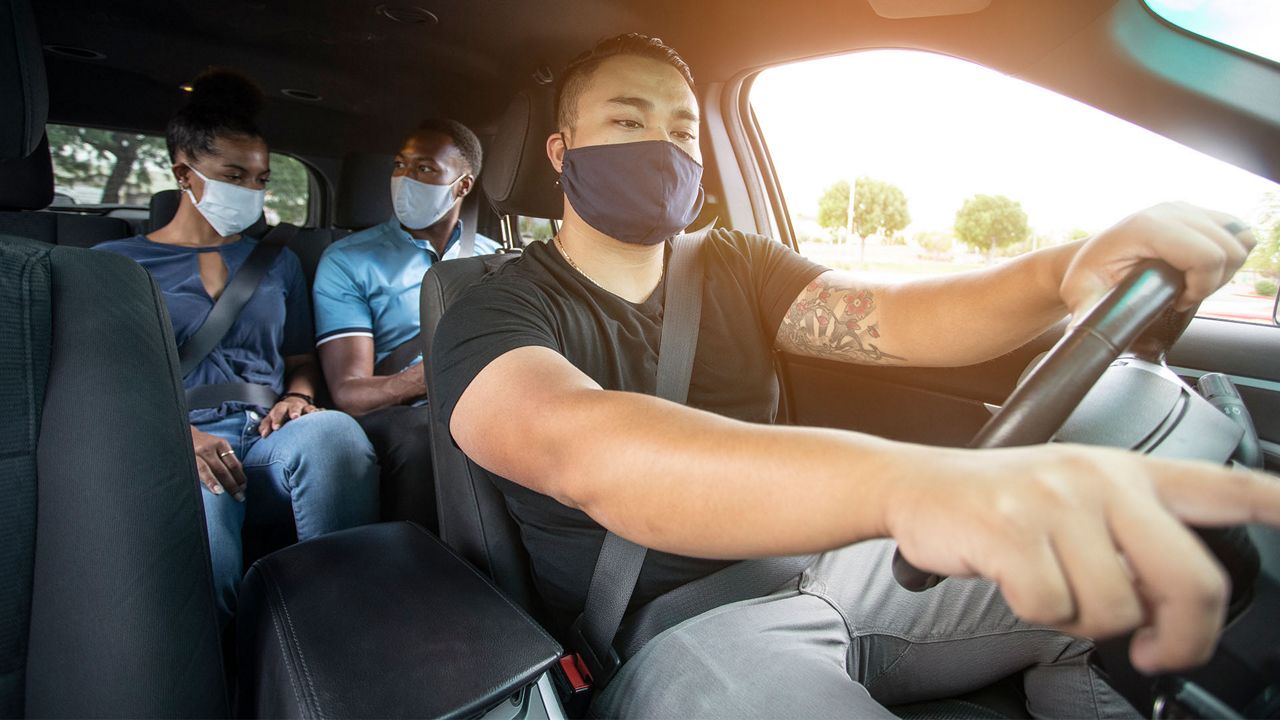LOS ANGELES — Eighty percent of gig workers are not able to meet household expenses, and almost half have not received personal protective equipment from the companies they work for during the COVID-19 pandemic, University of California, Los Angeles researchers say. In a study published Monday, the UCLA Labor Center found that gig work was the primary source of income for three-quarters of the gig workers surveyed, but half of them had to stop working due to the pandemic.
Even before COVID, “this workforce is super precarious,” said Tia Koonse, study co-author and legal and policy research manager at the UCLA Labor Center. “Being treated as independent contractors, without guaranteed wages, health benefits, or paid time off, the pandemic has only exacerbated the precariousness of these workers.”
For the study, UCLA surveyed 302 people who worked for the ride-hailing companies, Uber and Lyft, as well as the delivery services, Caviar, DoorDash, InstaCart, UberEats, and Amazon Flex. One in two had lost their jobs as a result of the pandemic, the study found. And four out of five workers said their current pay was not sufficient to pay for rent and other household needs.
The UCLA study comes at a time when Uber, Lyft, and DoorDash are engaged in a fierce battle with state regulators over AB5, the landmark California labor law that took effect in January and extends employee classification status to gig workers, including a minimum wage, overtime, and paid sick days. The companies have so far failed to comply.
Instead, they are backing Prop 22, the Nov. 3 ballot initiative that would exempt app-based transportation and delivery companies from providing employee benefits to certain drivers. If passed, Prop 22 would override the employee protections provided through AB5.
“The gig economy is at a crossroad,” Koonse said. Offering limited benefits but continuing drivers’ classification as independent contractors, Prop 22 is a “middle way” between how the system currently operates and AB5, she said.
Still, “Prop 22 is not going to resolve the issue with Uber and Lyft. The concessions they’re offering are radically insufficient based on what drivers have told us they wanted.”
Monday’s UCLA study is a follow-up to its 2018 study of LA County ride-hail drivers, which found that rideshare driving was the only job for almost half of them. Roughly 50 percent of drivers reported driving 35 hours or more per week. Such full-time drivers tended to be older, were more likely to be immigrants, and were also more likely to be supporting families with children.
Koonse said the results of the 2018 report were corroborated by the more recent research.
“The demographics haven’t changed. The number of people driving as a main source of income has not changed,” she said. “It’s largely the same workforce just experiencing worse conditions.”
The new UCLA study found that of the gig workers who kept working during the pandemic, 70 percent saw their hours reduced.
In addition, 61 percent of the gig workers surveyed said they were not required to report sick customers; 41 percent suspected someone they had driven or delivered to was, in fact, sick.
Even so, about half of the gig workers surveyed said they had not received PPE from their companies, and 95 percent of them said the companies would not reimburse them for PPE.
“If they were employees, they would have the right to employer-funded PPE under the California Division of Occupational Safety and Health,” Koonse said. “People are legit putting themselves in harm’s way to do this job.”
Daniella Torres has been driving part-time for Uber for three years.
“When you go to Home Depot or Walmart, they provide barriers. What do you think Uber and Lyft should do?” asked Torres, who has been spending her own money on Lysol to disinfect her car. “They should allocate PPE gear.”
Prop 22 is sponsored by Uber, Lyft, and DoorDash, which have collectively spent more to get it passed than any other proposition in California history: $188 million. Proponents of Prop 22 say app-based drivers prefer to be independent contractors by a four-to-one margin.
According to Ballotpedia.com, Prop 22 is supported by more than 20 entities, including the Republican Party of California, the California State Sheriff’s Assn., and Mothers Against Drunk Driving. It is opposed by more than 30 entities, including presidential candidate Joe Biden, the California Democratic Party, the California Teachers Assn., and ACLU of Southern California.



